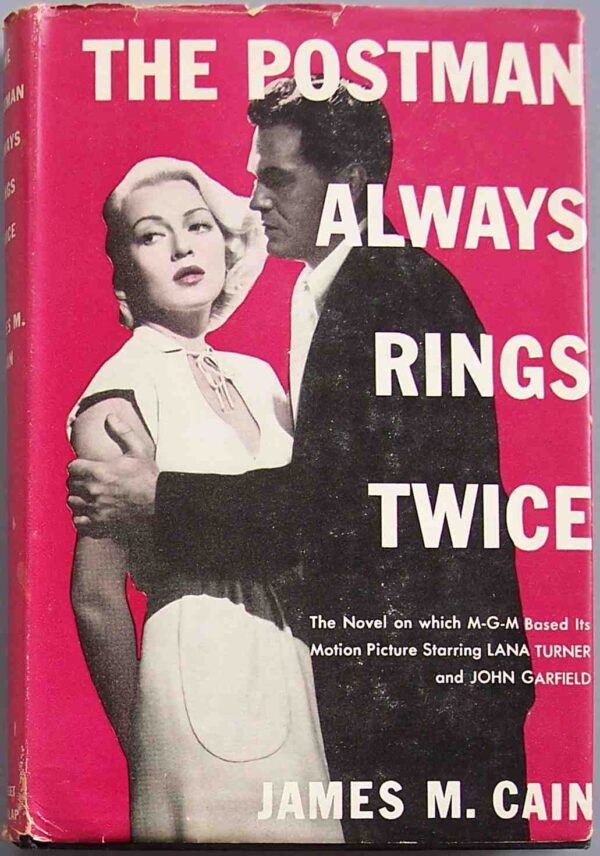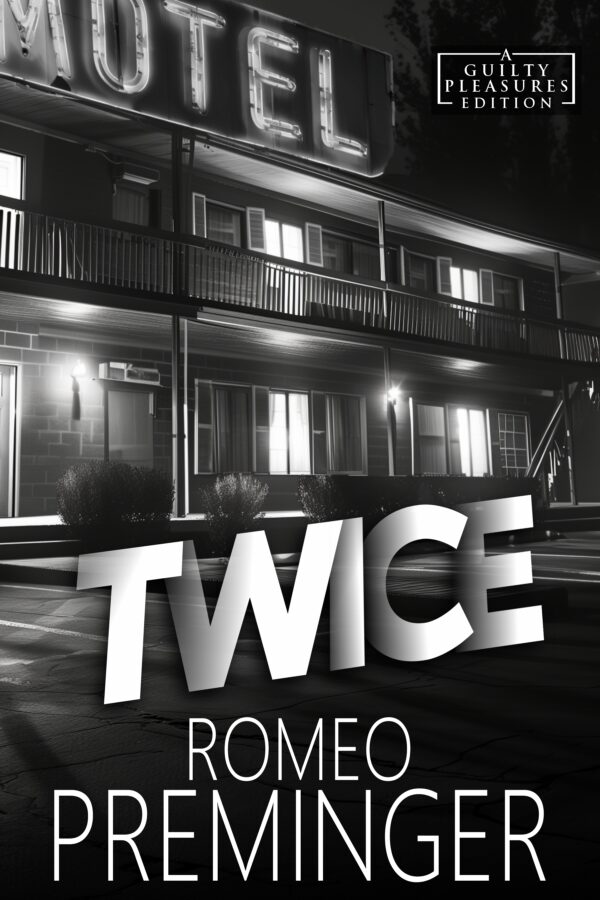By Romeo Preminger

I was first introduced to The Postman Always Rings Twice when I saw the 1981 film adaptation as an early teen. It had big, big stars. Back then, you didn’t get bigger than Jessica Lange and Jack Nicholson. The movie was also absurdly over-the-top, even for me at that young age, though entertainingly so. It was probably the first crime noir I ever saw, and I remember being captivated by the wild, dramatic acting while recognizing that nobody really acts like that in real life.
Postman was also subversive in its raw depiction of sexuality, which both scared and delighted me. To paraphrase a widely used quote from Maya Angelou, we don’t always remember what people say, but we remember how they made us feel. I guess that’s what hooked me with Postman. It has plotholes aplenty, cliched portrayals, and unresolved morally gray areas (particularly to our modern sensibilities), but you can’t deny it makes you feel something, like being an unanticipated voyeur to a salacious scene.
In the 1980s, erotic crime thrillers were big, and I suppose that early exposure to the genre contributed to my creative interest. Postman wasn’t the first, but it was one of the earliest. They were the kind of movies you don’t watch with your parents, but back then, kids were largely free of parental restrictions on TV, and we found ways to get video rentals for slumber parties and there was always that one friend who was lucky enough to have HBO and what we used to call Skin-o-MAX. Body Heat was one of my favorites, along with Dressed to Kill (whose transphobia went over my twelve-year-old head). Angel Heart was a cinematic masterpiece to young me, and then there were the femme fatale hits like Black Widow and Fatal Attraction.
Much of my inspiration comes from stories that have been told before, and a drive to revisit them from a queer point-of-view. I’ve plied my craft in lots of crazy tropes – college sex workers, unhinged mannies, and evil twins, to name a few. What’s fun about it for me is discovering how the characters change when the romantic element goes from heterosexual to gay.
It’s not as simple as just gender-swapping. Our understanding of identity is pretty different whether we’re cismale or cisfemale, a gay man or a straight man or a straight woman, and we’ve all been socialized in worlds with varying degrees of sexism and homophobia. If Glenn Close’s Alex from Fatal Attraction was a gay man, for instance, he might be equally manic and obsessive in nature, but he wouldn’t go about seducing and terrorizing Michael Douglas’s Dan in the same way. He couldn’t use the story’s most powerful ploy – faking pregnancy in order to trap Dan. No rabbits boiling on the stove! A gay Alex would have to think about the end game differently as well. He and Dan aren’t going to get married and live happily as a socially acceptable suburban couple. Same-sex couples were barred from marriage back then. This is where things get enjoyably creative when queering a classic story, and my hope is, amid the fun escapism of reading a psychological thriller, which isn’t so far afield from fantasy, the characters will make the reader feel something in a deep way.
To return to Postman, I think its lasting power comes from our ability to relate to its lead characters despite their terrible flaws. Frank has highly questionable ethics, but we still root for him to shape up and catch a break in life. Cora is a woman who’s had to eke out ways to survive, and, we can infer, she’s dealing with mental scars of abuse. They’re a terrible match, yet we end up believing that maybe, just maybe, their love will triumph, probably due in no small part to the compelling sexual chemistry between them. James M. Cain’s novel came out in 1934, and it has been adapted into films seven times. That has to say something about its resonance. The Great Gatsby, which is often cited as one of the best novels of the 20th century, was only adapted for the big screen four times.
Yet, how do you queer a socially problematic story? One could plunk gay men in Frank and Cora’s roles, but their heated romance, with dubious consent, bordering on physical, verbal, and sexual assault, would still make the story quite cringy to the modern reader, and perhaps harmful if not contextualized in a way that would make the sex scenes less thrillingly subversive. I had to rethink a lot of things in writing Twice. “Cora” couldn’t be married to another man and stand to inherit everything after his death. “Frank” would need to be reimagined differently for his self-confidence (or folly) in inserting himself into “Cora’s” complicated situation to make sense. Then, there are the side characters who would respond to the two leads in much different ways based on their gayness. I hope I maintained the twisty-turniness and vicarious thrills of the original story while offering some freshness and complexity. I also hope you’ll check it out and see for yourself how it all turned out.
About Twice
After a beef with the mob, Sal Minovich has to get out of New York City pronto. He gets as far as Beacon, New York, otherwise known as Nowheresville, and talks his way into a situation working as a handyman at a fading motor lodge. It’s not a bad place to hide out for a while and sock away some cash until he figures out his next step.
Then Sal meets the young manager, Will, and things get a whole lot more interesting. Pushed out by his homophobic father, Will hooked up with a small-time real estate investor, and now, six years later, he’s trapped in an unhappy relationship that might also be abusive. Sal thinks he and Will should run away together and leave their pasts behind. But Will won’t leave without a payout for all the time he’s put in. Do they have to get George out of the way to have their happily-ever-after?
Amazon | Apple | B&N | Kobo
About Romeo
Romeo Preminger has been called the master of the romantic thriller. He’s the author of over a dozen books including the Southern Gothic Arizona series, the branded romantic thriller series Guilty Pleasures Editions, some naughty shorts called Storybook Editions, and two erotic romance standalones.
Romeo lives on the East Coast with his husband. Beyond writing, some of his favorite jobs on his resume are a brief stint as a zookeeper, an even briefer stint as a hot dog vendor, and a more substantial career as a counselor and advocate for LGBTQ+ youth.
Author website: https://romeopreminger.com/home
Twitter: https://twitter.com/premingerromeo
Goodreads: https://www.goodreads.com/author/show/17142955.Romeo_Preminger


